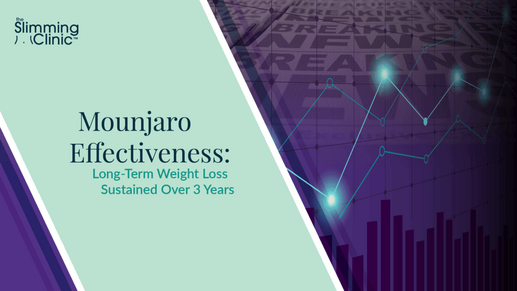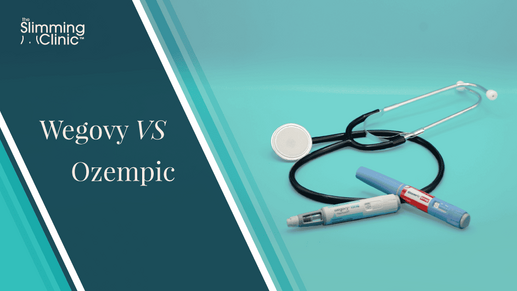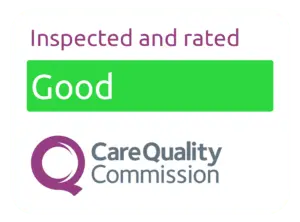The Future of Weight Loss: Exploring New Weight Loss Drugs 2025
What New Weight Loss Drugs Are On The Horizon?
As demand for effective weight loss treatments continues to soar, the landscape of weight management is evolving faster than ever. While established medications like Wegovy and Mounjaro have already transformed obesity care, 2025 marks a new era of innovation. Pharmaceutical companies are racing to develop new weight loss drugs, aiming to offer more powerful, more convenient, and natural solutions for patients struggling with obesity and weight-related health issues.
Among the most discussed are Orforglipron, CagriSema, Amycretin, Retatrutide, MariTide and natural supplements like Elcella. These new weight loss drugs aim to speed up weight loss, reduce side effects, or offer alternatives to injectable options, but are they effective?
These new weight loss drugs may sound appealing if you're searching for the best weight loss medications without injection or effective hunger suppressant pills online, but it’s essential to assess their clinical validation and long-term safety.
New Non-Injectable Weight Loss Drugs
| Feature | Orforglipron | Amycretin | Elcella |
|---|---|---|---|
| Type | Oral GLP-1 receptor agonist (pill) | Oral GLP-1 + amylin receptor agonist (pill, in early trials) | Natural supplement |
| Manufacturer | Eli Lilly | Novo Nordisk | Independent/natural health brand |
| Ingredients | Non-peptide GLP-1 receptor agonist | GLP-1 and amylin receptor agonists | Plant-based compounds (proprietary blend) |
| Trial Results | Up to 14.7% weight loss at 36 weeks | Early-stage trials; specific weight loss data not yet published | Reported 13% appetite reduction; weight loss outcomes unconfirmed |
| Regulatory Approval (UK) | Not yet approved; anticipated post-2026 | Not yet approved; in early clinical development | Available as a supplement; not regulated as a medication |
| Side Effects | Mild to moderate gastrointestinal issues (nausea, diarrhea) | Unknown; pending further clinical data | None reported |
| Administration | Once-daily oral tablet | Once-daily oral tablet (under investigation) | Daily oral supplement |
| Availability | Expected post-2026 | In early trials; availability timeline unknown | Available over-the-counter as a supplement |
If you're seeking a once-daily pill backed by promising trial results, Orforglipron has demonstrated up to 14.7% weight loss at 36 weeks in Phase 2 trials. However, it's not expected to be available until post-2026 and may come with mild gastrointestinal side effects. Amycretin, still in early trials, could offer even greater results by targeting both GLP-1 and amylin receptors, though more data is needed. For a natural, low-cost option available now, Elcella offers a 13% appetite reduction with no reported side effects (vendor claims), but weight loss outcomes remain unconfirmed.
New Injectable Weight Loss Drugs
Let’s compare these new injectable weight loss drugs:
- CagriSema - Injectable combo of semaglutide + cagrilintide
- Retatrutide - Injectable triple hormone receptor agonist (GLP-1, GIP, glucagon)
- MariTide - Injectable monthly treatment (GLP-1 + GIP agonist)
All harness hormone-based mechanisms for weight loss, but differ in how many pathways they target, how often they're taken, and how far along they are in clinical development:
| Feature | CagriSema | Retatrutide | MariTide |
|---|---|---|---|
| Type | Injectable combination of semaglutide + cagrilintide | Injectable triple hormone receptor agonist (GLP-1, GIP, glucagon) | Injectable monthly treatment (GLP-1 + GIP agonist) |
| Manufacturer | Novo Nordisk | Eli Lilly | Amgen |
| Ingredients | Semaglutide and cagrilintide | GLP-1, GIP, and glucagon receptor agonist | GLP-1 and GIP receptor agonist |
| Trial Results | Up to 15.6% weight loss at 32 weeks | Up to 24.2% weight loss at 48 weeks | Up to ~20% weight loss at 52 weeks |
| Regulatory Approval (UK) | Not yet approved; in clinical development | Not yet approved; in clinical development | Not yet approved; in clinical development |
| Side Effects | Gastrointestinal issues (nausea, vomiting); similar to other GLP-1 therapies | Gastrointestinal issues; similar to other incretin-based therapies | Gastrointestinal issues (nausea, vomiting); generally mild and transient |
| Administration | Once-weekly injection | Once-weekly injection | Monthly or less frequent injection |
| Availability | In clinical trials; availability timeline unknown | In clinical trials; availability anticipated post-2027 | In clinical trials; availability timeline unknown |
Among injectables, CagriSema combines semaglutide and cagrilintide for enhanced appetite suppression, with trials showing up to 15.6% weight loss at 32 weeks. Retatrutide, a triple-action injection, goes even further, showing 24.2% average weight loss at 48 weeks in Phase 2 trials, though it's not expected until post-2027. MariTide offers a monthly injection alternative with around 20% weight loss over a year, potentially appealing to those seeking fewer doses and long-term effectiveness. If approved, this could be a more convenient alternative to weekly injections.
Medical Expert Insights
According to Chief Medical Officer, Dr. Charlotte Norton: “It is a really exciting time for the development of weight loss medication. With new medicines going through clinical trials with promising results, the options available for patients to find the right medication type and form will soon be broader. Key to selecting the right medication is to speak to an experienced clinician who can help you select the appropriate medicine based on your lifestyle, health and weight loss goals.”
What Options Are Currently Available & Clinically Proven For Weight Loss?
The future of weight medication is incredibly exciting, with more innovative options emerging each year. But while we look ahead to the next generation of new weight loss drugs, it’s important not to overlook the clinically proven treatments already available today:
- Wegovy (Semaglutide): A once-weekly GLP-1 injection.
- Mounjaro (Tirzepatide): A once-weekly injection targeting both GLP-1 and GIP receptors.
- Orlistat (Xenical): A daily weight loss pill that blocks fat absorption and supports calorie control.
- CAAS (Phentermine or Diethylpropion): A daily appetite suppressant tablet that reduces hunger.
Latest clinical trials report weight loss percentages of up to 22.5% for Mounjaro, up to 15% for Wegovy, around 5-10% for Orlistat, and approximately 5-10% for CAAS. Side effects are usually manageable and often improve over time, especially when treatment is closely monitored by a healthcare professional.
These options are available now and prescribed by our GMC-registered doctors, helping you begin your journey with safe, effective treatments backed by evidence.
More information about these medications can be found here: What is Wegovy, What is Mounjaro, What is Xenical, What is Phentermine, What is Diethylpriopion.
Take the Next Step
Ready to embark on your weight loss journey with confidence? Here at The Slimming Clinic, we offer a variety of treatments tailored to your health and weight loss goals. Book a free call back to discuss your options, or order online through our Online Pharmacy to start your journey today.

How to Prevent Type 2 Diabetes

GLP-1 Patches vs Injections: Do Weight Loss Patches Work?

Mounjaro Effectiveness: Long-Term Weight Loss Sustained Over 3 Years

Your BMI and the Health Risks

Wegovy vs Ozempic: Which Is the Better Weight Loss Medication?

How Sleep Affects Weight Loss – World Sleep Day 2025
Looking to start your weight loss journey, then take action today!
Book an appointment with one of our GMC-Registered Doctors who are weight loss experts and can ensure you get the best programme for you. Alternatively request your medication online using our online prescription service.



